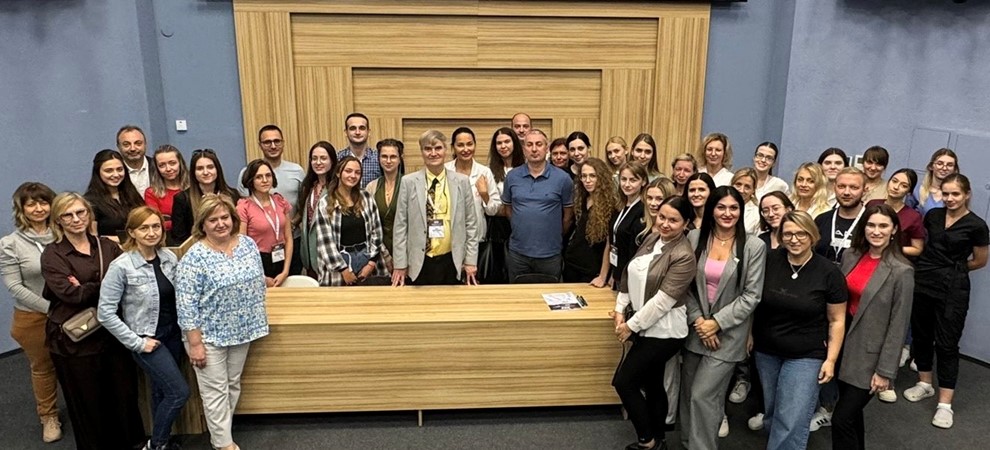
Misplaced your car keys lately? Can’t remember if you locked the door when you left the house? Does an old friend’s name elude you? Don’t worry too much, it happens.
Such lapses are indicative of the normal changes in cognitive abilities that most people experience as they get older. Though frustrating, these occurrences shouldn’t be confused with symptoms of disease processes such as Alzheimer’s or dementia.
This reassuring message comes from Leslie Snyder, a professor in UConn’s Department of Communication. She was recently a member of a team assembled by the Institute of Medicine (IOM) – part of the National Academy of Sciences – that created an action guide on what is called ‘cognitive aging.’
Cognitive aging is the normal process by which the human brain changes with age in both physical structure and ability to cope with things, including the speed of making decisions, the ability to learn new tasks, and that ever-popular topic, memory.
The IOM committee focused on the public health dimensions of cognitive aging, and its mission included coming up with clear definitions and terminology, as well as identifying ways to communicate effectively with health professionals, caregivers, and the general public.
Snyder, who is also director of the Center for Health Communications and Marketing at UConn, says, “In talking about cognitive aging, we are not talking about a state of disease – we are talking about a healthy state in an older population. And we know from experience that while a certain decrease in mental abilities is common, there are other abilities characterized by such things as wisdom and knowledge – and even levels of happiness – that continue to increase with age.”
Snyder notes that the trajectory of when these declines and gains occur varies with each individual. “What the IOM wants everyone to know,” she says, “is that change is completely normal.”
In preparing its report, the committee identified three actions that people can take to help protect their cognitive health as they age. They are:
- Being physically active – ideally throughout an individual’s lifetime, but it’s never too late to start.
- Reducing cardiovascular risk factors such as hypertension, diabetes, and smoking.
- Managing medications: Since a number of commonly prescribed medicines can have a negative effect on cognitive function when used alone or in combination with other medications, it’s important to consult with a health care professional whenever there are questions or concerns.
Other actions that may promote cognitive health include being socially and intellectually active, as well as getting plenty of sleep.
One significant concern that came to light was somewhat of a surprise to Snyder and her team.
“We found that delirium – the sudden onset of stress and confusion that can be caused by a hospital stay or by certain medicines – has an extremely detrimental effect on long-term cognitive health,” she says.
Research has revealed that delirium affects 30 percent to 50 percent of general medical surgical patients, and 80 to 90 percent of intensive care patients over the age of 70. With this in mind, the committee recommended to physicians that they pay particular attention to symptoms of delirium in their patients following any major illness, hospitalization, or surgery.
There are also things that family members or caregivers can do, says Snyder. “It’s important that as people age, they have a checklist of items that loved ones or caregivers can gather at home in case a trip to the hospital is necessary. Things like eye glasses, reading material, prescriptions, and a cell phone – anything that will help ground a person to their surroundings when they are in an unfamiliar environment – can really help.”
Snyder’s final message is that if a person is concerned about how they are functioning, whether it’s memory loss or a perceived inability to cope with everyday tasks, it’s important for them to see their doctor.
“Sometimes,” she says, “all we need is reassurance that what we are experiencing is just a normal part of the aging process. And if it turns out to be something more, then getting prompt medical attention is even more important.”
Read more on cognitive aging at the Institute of Medicine website.



